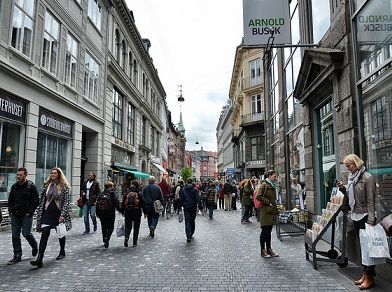Research carried out by the Kræftens Bekæmpelse cancer organisation reveals that not all patients have benefited from the advances in cancer treatment seen over the last few years, as social inequality plays a major part.
Cancer patients with shorter educations, low incomes or who live alone do not make as much progress as their better-off counterparts.
Of all the patients diagnosed with cancer between 2005 and 2009, 53 percent of those with the lowest incomes were alive after five years compared to 69 percent of those with the highest incomes.
The recovery rate has been improving for all types of cancer since the 1980s, but for some kinds of cancer, such as intestinal cancer, the richest 20 percent survive much better while the poorest 20 percent have only shown a marginal improvement over the last 30 years.
Some more equal than others?
“We knew there was a problem regarding social inequality, but it is still shocking to discover how marked it is in all aspects of the disease. As a welfare society this is something we can’t accept and we must do something about it,” said the organisation’s administrative director, Jesper Fisker.
READ ALSO: Danes dying of cancer more often that their Nordic neighbours
The research revealed, for example, that there is social inequality bound up with the lifestyle and environmental causes of cancer such as smoking and diet.
There is also inequality involved when it comes to how far the cancer has progressed, when it is discovered, what kinds of treatment are offered and the chances of returning to work after having had cancer.
On a more basic level, there is growing inequality when it comes to who actually survives the disease.
Responding to a need
To help tackle the situation, Kræftens Bekæmpelse has earmarked 20 million kroner to set up a research centre for cancer equality, Dansk Forskningscenter for Lighed i Kræft.
The centre has set a number of research projects in motion, among other things to investigate new ways to organise the health service so that all patients can have their needs for support during an illness caused by cancer covered.
“Some times it’s about giving some patients a little more, so that in the end everyone gets the same,” said Professor Susanne Dalton from the centre.
“Many patients can cope on their own, and that’s fine, but perhaps we ought to do a bit more to provide extra help to those who don’t say much and would rather just get home as soon as possible. We need to find out how to do the best for all patients.”














